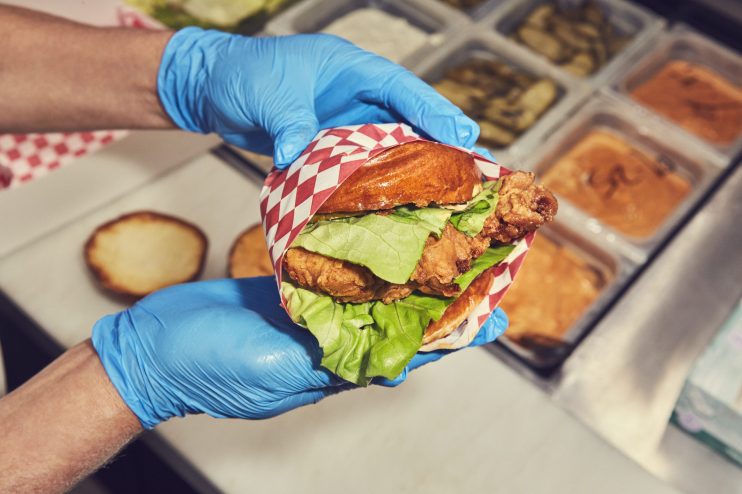Uber Eats orders skyrocket 160 per cent in lockdown

Orders on Uber Eats have jumped significantly since lockdown began, rising by over 160 per cent as the UK turned to food delivery apps to replace the high street.
The number of new restaurants on Uber Eats’ UK platform has almost doubled in the last four months to a total of 17,000, as smaller independent venues aimed to take the place of larger chains that were forced to close.
Toussaint Wattinne, general manager for Uber Eats in the UK and Ireland, told City A.M. that lockdown measures accelerated the firm’s goal of ordering on food delivery apps becoming “an everyday habit” for Brits.
“[Uber Eats has] become increasingly an essential service for all involved. Restaurants turned to us more than ever to ensure they can continue to drive sales during economic difficulties,” he said.
Wattinne said the platform reported the largest number of people opening the Uber Eats app on a daily basis during lockdown, as it expanded its delivery service.
Convenience and grocery orders jumped 166 per cent since March thanks to tie-ups with local outlets and chains such as Londis and Costcutter, as people bought everyday essentials such as milk, eggs and bread.
Coffee orders made via the app have also increased 149 per cent, with brands such as Caffe Nero, Pret A Manger and Black Sheep joining the app.
A number of fine dining restaurants also turned to food delivery to recover lost revenue during the pandemic, such as Hakkasan in Mayfair. Some reduced their food prices to cater more towards the app’s audience.
“What we’ve seen is that we’ve been a solution that restaurants, consumers, and couriers turn to, which has impacted the business in a way that has accelerated [Uber’s] growth both globally and in the UK,” Wattinne said.
“We’ve seen meaningful improvements in a number of areas, such as basket size. Some of these have continued [to improve] during lockdown, so we’re making improvements in the right areas.”
He added that while Uber Eat’s performance was impacted in the immediate aftermath of lockdown measures forcing restaurants to close, the subsequent demand from consumers and local hotspots has more than made up for it.
In the early weeks of lockdown, Uber abandoned a promotional free delivery offer designed to boost orders as demand spiked. Wattinne said the firm continues to invest in promotional marketing to support its partners.
Competition in the food delivery space has increased significantly in recent months, after Just Eat was merged with Takeaway.com and Amazon’s £440m investment in Deliveroo was approved by regulators last week.
“There’s been investment in the industry for a long time and there will continue to be investment in future,” Wattinne said. “I think [Amazon’s investment] actually a good thing, as it helps accelerate services to restaurants and consumers.
“As far as we are concerned, we’re very focused on offering the best possible service. We’ve made tremendous progress in the last three months and we’re very confident in our path forward.”
Expansion plans in the UK were put on hold as the coronavirus crisis worsened, but have recently restarted. Wattinne said the firm opened for business in 10 new towns last week.
“We initially slowed down and paused our expansion for a period of time to focus on providing a safe experience, and adapt to the new world we live in. But we’re now in a position to go back to expanding rapidly in the UK.”